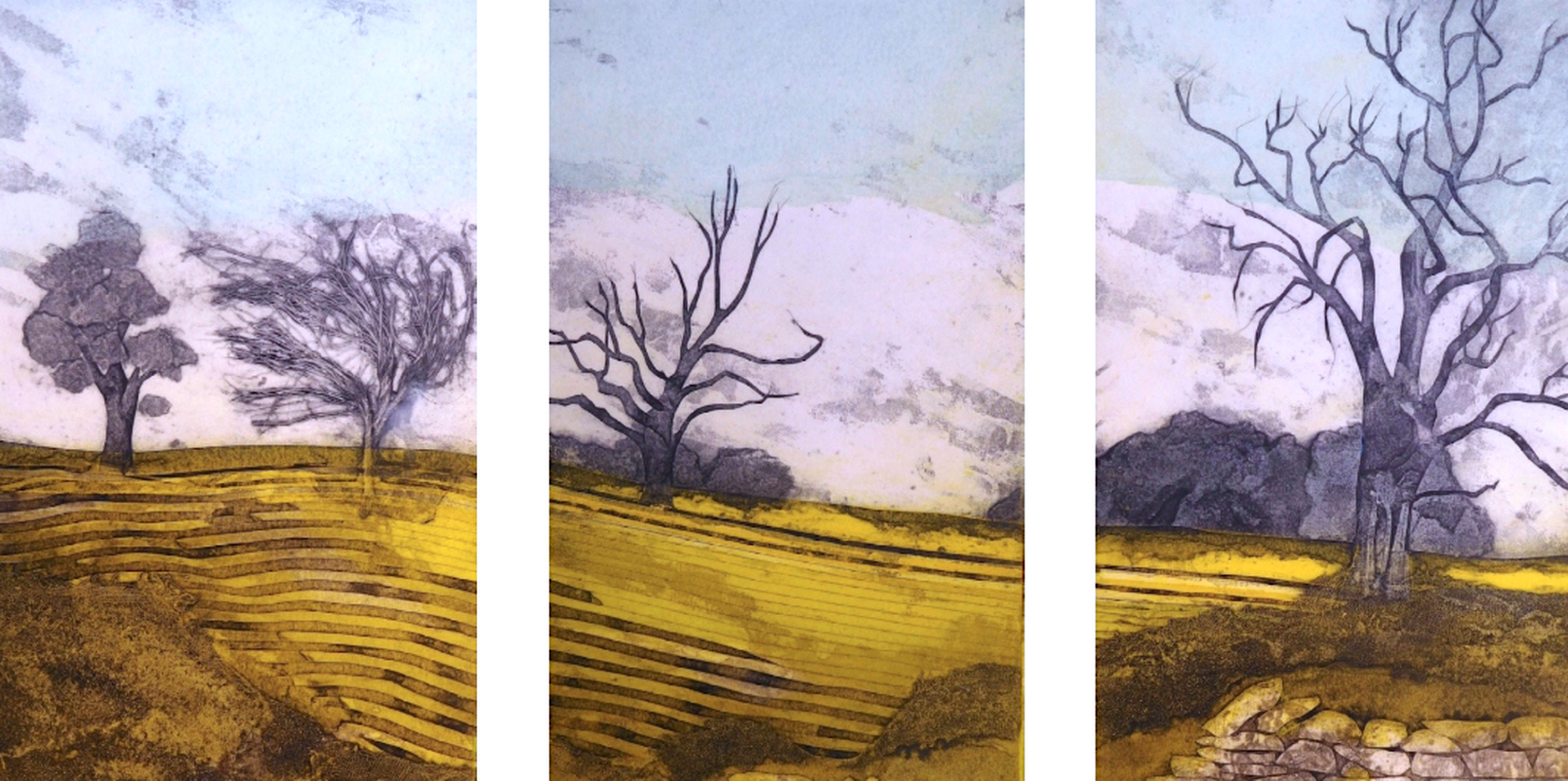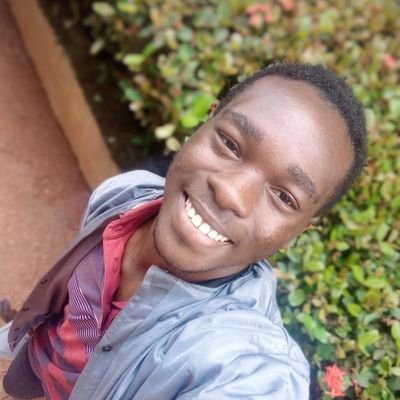
SARAH ROSS-THOMPSON AND THE ART OF COLLAGRAPHED PRINTS
I interviewed artist Sarah Ross-Thompson whose exceptional Collagraphed prints use fabrics, lichen, porridge and string to create images of the dramatic Scottish Highlands where she


I interviewed Nigerian writer Mhembeuter Jeremiah Orhemba, who describes himself as: “Writer. Editor @FictionWrit Magazine. 1st runner-up, Kreative Diadem Contest 2021. Phoenix. Aspiring Boyfriend/ Husband. Seeker. Queer.”
Leslie: Tell us about Nigeria and your upbringing and how it has shaped who you are and what you write.
Jeremiah: Nigeria is home. I was born here. I have been here all my life.
I grew up in a dysfunctional family. I knew lots of love and adoration from my maternal aunts, but my parents were always fighting. This distressed me. And so my childhood was rife with the need to bridge my parents. I failed. Dad filed for a divorce years after their separation. Whenever I get to explore family in my writing, of which I rarely do, I do so through the eyes of a character with a single parent.
In 2019, I fell for someone who I was becoming friends with. It was unreciprocated. And so my writing took on a new colour, always stories about boys who fall for straight boys and get heartbroken. I also attempted stories where a boy falls for another and it is mutual and works out. It was my way of making my dream come true. Besides, there wasn’t so much of queer literature to fall back on while growing. That made me intentional about writing them. People like me existed, and ought to be recognized. And as humans with joy and pain and struggles. My experiences, then, are what define the type of stories I tell. Stories offer me power to create an alternate reality for myself. I’m constantly reimagining my life in my head.
Leslie: What have you learned about writing and yourself from the Africa-Writes Prose Workshop and from the people who have encouraged and critiqued your work?
Jeremiah: I’ve been privileged to have crossed paths with some of my contemporaries and writers above me. Their feedback, encouragement and advice has helped me grow. Always reminding me of the potential they see in my writing. They’ve taught me to set doubts aside and come into writing with confidence. Writing is rewriting. First and last sentences matter. Writing should sing. It should evoke emotion. Be clear in what it is saying.

I have learnt I ought to be resilient. Rejection letters should not deter me nor my belief in myself. Consistency pays.
Writing is a humbling experience. One keeps growing in the craft as there’s so much to learn.
Leslie: What’s your personal writing process, from first spark to completed text? Do you consciously create conditions to facilitate your best writing? If so, what are they?
Jeremiah: Writing, for me, begins with the question, “What if?” I fantasize a lot. I tweak my life in my head. What if someone likes me the same, and is texting me this moment? What if, presently, I’m in my seventies, all my friends are happily married, but I’m still single? And content. Or miserly? What if war breaks out in my community? What if? What if? This is how my ideas are born.
I don’t outline. For me, outlining is burdening and restricting. Gets me agitated rather than rooted. The plot opens to me only when I begin writing. Often, I have an idea of where I’m going as most times I’m actually fictionalizing an experience of mine, remaking it with new twists and alternate possibilities.
I barely keep notes of my ideas, and that’s not just because I’m a panster, but because I’m lazy. So lazy, lol. However, if the idea won’t stop jumping in my head, so alive and vivid I may lose it, I write a note.
It is war when I write. I struggle, varying sentence length, hence editing as I go. It hampers progress, but I can’t help it. I love experimenting with style and unconventional points of view. This has me hit blocks often. I clench fists and rave. I should give the work time, but I’m an impatient person. I want to have a brilliant masterpiece, “and now!” In the end, however, I am left with no choice but to take a break–more so if it’s speculative fiction. It takes so much grit to build worlds and magic systems.
I don’t edit painstakingly. Twice, thrice, I send my work out for feedback. If feedback leans into the negative, I stash the work, mourn, and begin another story. Sometimes, I send it out to magazines regardless. Rewriting a story feels rigorous and usually feels like I have lost control. But there are certain stories that pull on me. With them, I never lose steam, and cross all hurdles to mould them to perfection. Fortunately, I’m learning to cultivate the virtue of patience (might help with the plethora of rejection letters I receive, lol); writing is rewriting.
For rituals, I don’t have any. Neither do I have a particular time of the day when I write. If a place or time is convenient, I write. Following the flow is more of my thing than working in organized structure. My Sun Sign is in Sagittarius; I guess this is why, lol.
Leslie: In what ways is contemporary African writing breaking new ground?
Jeremiah: Chinua Achebe and his generation left a legacy for African Literature. That legacy has gained exponential growth with the works of Adichie, Emezi, Okri and many incredible writers of a new generation clinching international prizes and worldwide recognition. Writers of my generation are also doing wonders. They are topping international prizes and appearing with ground breaking poems/prose in top-notch magazines. Their works delve into personal and intimate topics and remove the shame associated with them–sexuality, mental health, body autonomy and various identities. This is bringing the much needed conversations around these human conditions. There’s an abundance of literary talent here in Africa. The future of African literature is faya!!!

Leslie: How does your gender express itself through your writing?
Jeremiah: As I have earlier noted, my writing is usually a recreation of my lived experiences. This has me walking through my fiction in the perspective of cis male characters. I would love to write about other genders, but I don’t think I can pull it off properly. Once, I wrote a flash fiction from the perspective of a lesbian girl. When I read it out at TWC, a community of on-campus writers at Nsukka, faces shook this way and that. Girls, especially. I had misrepresented them; my character felt bland and untrue to the female experience. The only story I think I pulled it off well is “Burning Low”, a story loosely inspired by days of closely watching my great grandma. I write female characters nonetheless–but as minor characters. I have never written a transgender character. I’ll love to. Only I do not fully know what it feels like to be transgender. Any attempt will be a blunder
Leslie: Which would be the first piece of yours you’d like someone to read? Why that particular one?
Jeremiah: I’m tempted to pick “And This Is How They Become Beautiful.” It earned me first runner up for the 2021 Kreative Diadem Flash Fiction Contest. Also, it’s my closet imitation of Anthony Doerr that has worked and found home. But it is brief. Other stories tug at me. Still, they too are brief. “Moon-Soon” is not so brief, but I think “Burning Low” is more heartfelt and unconventional with its second person narrative. So, “Burning Low.”
Next week I interview Romany Gypsy, disabled, neurodiverse performance poet and theatre maker Gemma Lees.
ABOUT LESLIE TATE’S BOOKS:

I interviewed artist Sarah Ross-Thompson whose exceptional Collagraphed prints use fabrics, lichen, porridge and string to create images of the dramatic Scottish Highlands where she

Part 2 of my interview with Mark Statman looks closely at Mark’s Latin American poetic influences, his life in Mexico and ends with an extract

I interviewed international poet and translator Mark Statman about Volverse/Volver, his 14th published collection. Mark, who has won national arts awards, is Emeritus Professor of Literary

I interviewed Lisa Dart, finalist in the Grolier, Aesthetica and Troubadour Poetry Prizes and author of The Linguistics of Light (poems, Salt, 2008), Fathom (prose

I interviewed writer Julia Lee Barclay-Morton about her experience of autism. Julia began as an experimental dramatist in New York, moving to the UK to
| Cookie | Duration | Description |
|---|---|---|
| cookielawinfo-checkbox-analytics | 11 months | This cookie is set by GDPR Cookie Consent plugin. The cookie is used to store the user consent for the cookies in the category "Analytics". |
| cookielawinfo-checkbox-functional | 11 months | The cookie is set by GDPR cookie consent to record the user consent for the cookies in the category "Functional". |
| cookielawinfo-checkbox-necessary | 11 months | This cookie is set by GDPR Cookie Consent plugin. The cookies is used to store the user consent for the cookies in the category "Necessary". |
| cookielawinfo-checkbox-others | 11 months | This cookie is set by GDPR Cookie Consent plugin. The cookie is used to store the user consent for the cookies in the category "Other. |
| cookielawinfo-checkbox-performance | 11 months | This cookie is set by GDPR Cookie Consent plugin. The cookie is used to store the user consent for the cookies in the category "Performance". |
| viewed_cookie_policy | 11 months | The cookie is set by the GDPR Cookie Consent plugin and is used to store whether or not user has consented to the use of cookies. It does not store any personal data. |